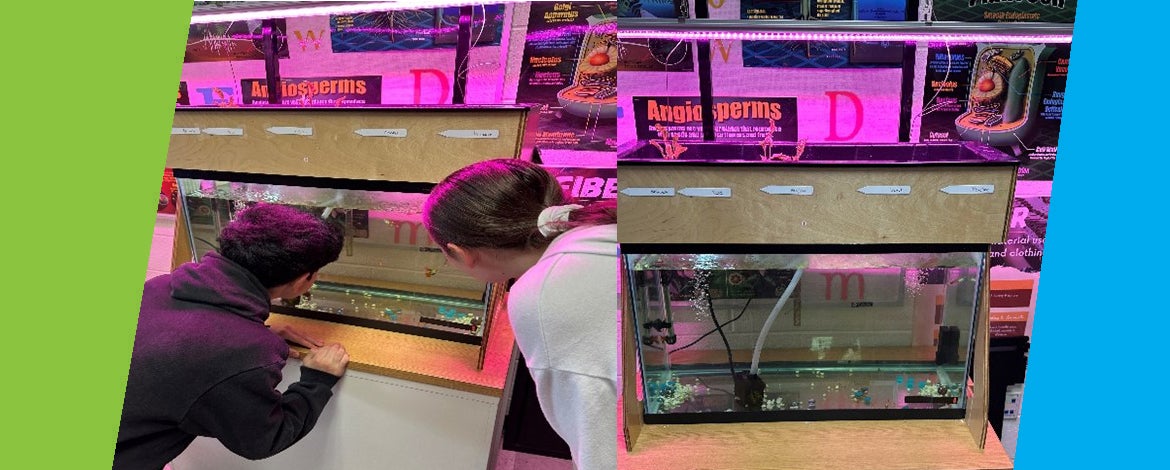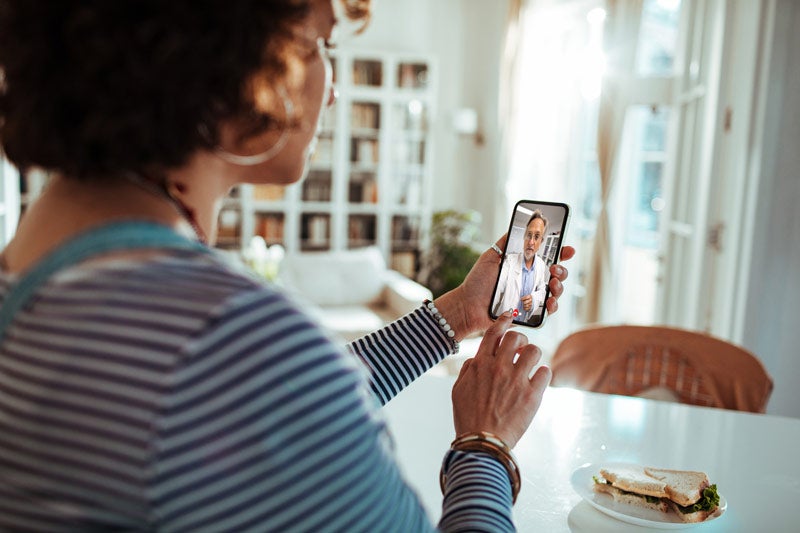Stay close to loved ones while distancing
May 7, 2020
By Inua A Momodu, M.D., MPH, MBA, DFAPA, DFAACAP
Chief Medical Ambulatory Officer and Chairman, Department of Psychiatry, AtlantiCare
Thank you, for keeping your distance, to protect yourself and others from COVID-19.
Now, let’s get up close and personal about another personal protection matter – your need to be connected.
In March the World Health Organization – or WHO - announced that it was moving away from the term "social distancing" because it implies a sense of disconnection from loved ones.
We know that physically staying away from others is one of the most effective ways to combat the spread of the virus.
Over the last several weeks at AtlantiCare, we have experienced an increase in the number of cases of those who have COVID-19. This has included community spread. We believe some of this has to do with people getting together to celebrate holidays and warmer weather. We are extremely concerned about this.
During this time of fear and uncertainty, we so desire the very thing that could endanger our physical health.
As healthcare providers who see the impact of others getting too close physically, we appreciate and support need to keep physical distance.
We also recognize the possible threat to individuals’ and society’s mental health and well-being.
Staying away from others goes against our natural desires for connection and physical touch. This could contribute to feelings of anxiety, loneliness, fear and grief among individuals.
Consensual, supportive physical contact, such as a hug, a handshake or a hand around a shoulder is something many of us have given or received in the past.
Physical contact and in-person interactions release chemicals in our brains and bodies, including endorphins, serotonin and oxytocin. These can boost happiness and reduce pain and stress.
Using the term “physical distancing” emphasizes the need to remain socially connected while we’re physically apart. We can do this using technology to stay in touch.
Ironically, the same technologies we often blame for tearing apart our social fabric might be our best chance, now, for distant socialization.
Social connectedness in close relationships is one of the most fundamental aspects of human life. Throughout history, denying access to social groups has been a powerful means of punishment.
It is the experience of feeling close and connected to others that is an essential part of being human.
Lack of connection, or loneliness, has been linked to inflammation, accelerated aging and cardiovascular health risk, suicide, and all-cause mortality.
Social connection activates the reward system of the brain. While it appears that social isolation triggers a "neural alarm system" of threat-related regions of the brain.
As a physician, husband, father, son, colleague and friend, I have seen the impact feeling socially isolated has had on patients and my loved ones.
Some tips:
- Use video chat applications to schedule regular dates and times with family and friends for video calls.
- Join neighborhood online groups to see what fun activities other people do.
- Use mindfulness apps. The UCLA Mindful Awareness Research Center app is one I have found particularly helpful and have shared with colleagues and patients. It uses a research-based approach to mindfulness as a way to enhance physical, emotional and mental wellbeing.
- Try virtual yoga or other movement classes.
- May is typically the time we especially celebrate mothers and graduates. May weddings usually provide picture-perfect group hug moments. And baseball, lacrosse, field hockey and other spring sports would normally have us high-fiving each other.
- May is also national Mental Health Awareness Month.
- I urge you to reach out and virtually touch your loved ones as you stay connected.
Please let me know how you’re doing that. by sending us a private message through our AtlantiCare Facebook page. I might feature your ideas in a future blog.

